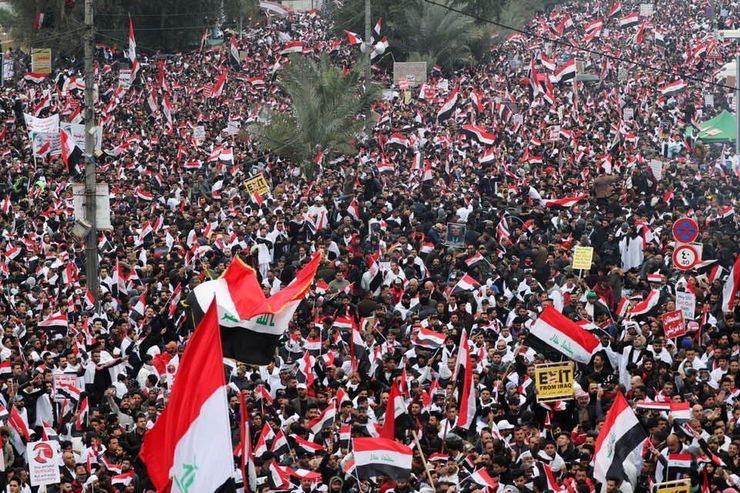Speaking in an interview with the website of the Strategic Council on Foreign Relations, Hassan Danaeifar said that the issue of partition of Iraq was raised by the Americans as political pressure, stressing that the division of countries was not a cake that anyone could have a piece. Although the American appetite is high and they are eager to have the entire cake, and if not, demand this or that piece for now as something belonging to them! But the division of Iraq is not easy.
The Middle East affairs expert noted: The first time the idea of Iraq’s division was raised was in 2005 by Ms Condoleezza Rice the then secretary of the US National Security Council. She brought up an issue about a “New Middle East” and a “Greater Middle East”. Many at the time said the new Middle East concept was clear, but how one would define the greater Middle East?
The United States and Israel have since sought to shrink and disintegrate the Middle East, and because of their experience in the Middle East, small or quasi-countries such as the United Arab Emirates, Kuwait and Bahrain were easy snacks for the Americans and Israelis to swallow; they want to generalize this theory in the Middle East. There was a time when the Americans said we should leave the Middle East. But on the other hand, they faced a paradox called Israel’s security.
Danaeifar added: “For the United States, now that Israel cannot grow bigger, it needs an arrogant power bigger than it to stand beside Tel Aviv and support it. Therefore, with their departure, the countries of the region should be small and Iraq, for example, should become three countries and Syria two. There were even chaotic dreams about Iran in the new Middle East the schemes of which are available.”
The former Iranian ambassador to Iraq, stressing that Iraqis, both Shiite and Sunni, are sensitive to the issue, said: “It is not like anyone arrives and tries to break up their country.”
At the same time, referring to the news reports that some groups and countries are trying to form Sunni regions in Iraq with Anbar Province acting as the centre, he considered the formation of new regions to be a different matter from the breakdown of Iraq. The constitution has authorized the creation of regions and other regions are formed in southern Iraq. But this should be considered as a separate issue from the partition of Iraq.
Danaeifar emphasized that the US and Israel are of course seeking to break up the regional states, adding: “The issue of the formation of new regions in Iraq is an internal one and there have been different views from the beginning. They are looking to implement a state-like model.”
“There are analyzes that the formation of these regions could lead to the disintegration of Iraq,” the former diplomat said. But breaking up Iraq is not an easy matter. No one can split Iraq. The Iraqi people have a strong sense of unity in their country, and they deserve it.”
“It’s not a matter for Americans to decide today about 12,000 km across the borders,” he said. Besides, the Middle East is not in a position for the Americans to decide. The people of the region are the ones who should decide their fate.
On the huge anti-American rallies held in Iraq and its implications, he said: “I have lived in Iraq for a long time. Iraq had never seen such rallies ever in its lifetime as they were not an ordinary event. On the claim that these rallies had been organized by a particular religion or group in Iraq, he said it is not true.
He continued: Some Western media even attributed this march to Iran, though this is a contradiction in their analysis, as the same media said three weeks ago that people were protesting in the streets of Baghdad to put an end to Iran’s presence in Iraq. These are sheer contradictions. America is responding today to the regional phenomena in a reactionary manner and its behaviours are not active. In inactive behaviours, they talk about different things in the morning and take back their words in the afternoon on the same day.










0 Comments